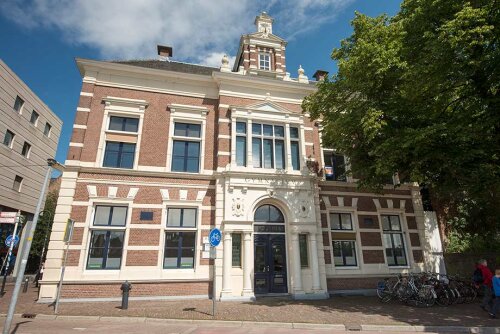Best Citizenship Lawyers in Delft
Share your needs with us, get contacted by law firms.
Free. Takes 2 min.
List of the best lawyers in Delft, Netherlands
About Citizenship Law in Delft, Netherlands
Citizenship in Delft is governed by national Dutch nationality law and applied locally by municipal authorities. The basic legal framework determines who is a Dutch national at birth, how adults can acquire Dutch nationality by naturalization or by the option procedure, and how nationality can be lost or renounced. Although the laws are national, the Municipality of Delft - Burgerzaken handles application intake, practical guidance, and the local formalities such as the naturalization ceremony. Decisions are made under national law and may involve the Immigration and Naturalisation Service and the Ministry of Justice and Security.
Why You May Need a Lawyer
Citizenship matters can be straightforward for many applicants, but there are several common situations where specialist legal help is valuable:
- Complex residence histories or incomplete documentation - proving lawful and continuous residence can be difficult when records are missing, inconsistent, or involve multiple countries.
- Dual-citizenship questions - the Netherlands generally restricts dual nationality. Exceptions exist and identifying whether you qualify for an exception or need to apply for retention can require legal analysis.
- Criminal record or public-order concerns - past convictions, pending cases, or administrative immigration issues can lead to refusals. A lawyer can advise on disclosure, mitigation, and remedies.
- Refusals and appeals - if a naturalization or option application is refused, you normally have a limited time to appeal. A lawyer drafts and pursues appeals before administrative courts.
- Statelessness and special statuses - stateless persons, refugees, or former Dutch nationals seeking restoration have specific paths and documentation needs that benefit from legal expertise.
- Family and minor issues - citizenship for children, parental consent, adoption-related claims and custody issues often require careful legal work.
- Procedural or administrative complexity - requesting retention of nationality, clarifying loss of nationality while living abroad, or seeking ministerial discretion are technical matters where a lawyer can represent you and liaise with authorities.
Local Laws Overview
Key local and national aspects relevant to citizenship applicants in Delft include:
- National legal framework - Dutch nationality law (Rijkswet op het Nederlanderschap) sets rules on acquisition by birth, descent, adoption, naturalization, and the option procedure. These rules apply in Delft as elsewhere in the Netherlands.
- Acquisition by descent - children born to at least one Dutch parent usually acquire Dutch nationality at birth. Specific rules apply depending on the parents circumstances and whether paternity or maternity is legally recognized.
- Naturalization - common route for adults. Typical requirements include lawful and uninterrupted residence in the Netherlands for a specified period (usually five years), sufficient integration and Dutch language ability, good conduct, and the intention to reside in the Netherlands. Spouses of Dutch nationals and some other categories may have shorter residence requirements.
- Option procedure - a faster, simpler route for certain categories such as some long-term residents, people born in the Netherlands under certain conditions, or persons who previously held Dutch nationality. Eligibility rules are specific and often easier than full naturalization.
- Civic integration - naturalization and many option claims generally require proof of Dutch language and civic knowledge by passing the civic integration exam or presenting an equivalent diploma or exemption.
- Dual citizenship - in many naturalization cases applicants are required to renounce their previous nationality. There are structured exemptions such as for EU/EEA nationals, refugees, or if renunciation is impossible or disproportionately difficult.
- Administrative process - applicants usually apply through their municipality. The municipality checks the application and forwards it to the national authority that makes the decision. If the application is granted you typically must attend a local naturalization ceremony and make a declaration or oath of allegiance.
- Fees and timeframes - government and municipal fees apply. Processing times vary depending on complexity and caseload; expect several months for many cases.
Frequently Asked Questions
How do I start an application for Dutch citizenship in Delft?
Start by booking an appointment with the Municipality of Delft - Burgerzaken. They will explain whether you should apply for naturalization or the option procedure, what documents you must bring, and will accept and forward the application to the authority that decides. Before the appointment, gather identity documents, proof of residence, passports, birth certificates, and civic integration documentation if you have it.
How long does the naturalization process usually take?
Processing times vary with caseload and case complexity. Many straightforward naturalization applications take several months; some may take longer if authorities need extra documentation, checks, or follow-up. The municipality can give local estimates and inform you of any administrative steps that may affect timing.
What are the costs involved in applying?
There are government fees for naturalization and sometimes municipal service fees. Fee amounts change periodically. Expect to pay an application fee and possibly additional costs for civil status documents, translations, and certified copies. Check current fee levels with the Municipality of Delft.
Can I keep my current nationality if I become Dutch?
The Netherlands generally requires renunciation of your current nationality when you naturalize, but there are important exceptions. Exceptions may apply for EU or Swiss citizens, for refugees, when renunciation is impossible or would cause major hardship, or under other specific circumstances. A lawyer can advise whether an exception applies to your situation.
What if I have a criminal record?
A criminal record can affect naturalization. Minor or old offenses do not always lead to refusal, but recent or serious criminal convictions may result in denial on grounds of public-order or bad conduct. It is essential to disclose convictions honestly and consult a lawyer to assess risks and prepare supporting arguments.
Can my child get Dutch citizenship?
Children acquire Dutch nationality in different ways depending on the parents status, place of birth and legal recognition. Children born to a Dutch parent commonly receive Dutch nationality automatically. Children born in the Netherlands to non-Dutch parents do not automatically become Dutch citizens unless specific conditions are met. For minors there can be special option-procedure possibilities. Consult municipal authorities or a specialist lawyer for your child-s specific case.
What is the option procedure and who can use it?
The option procedure is a simpler, faster way to acquire Dutch nationality for people who meet certain criteria: examples include some long-term residents, children born in the Netherlands who meet residence conditions, former Dutch nationals wanting to reclaim nationality, and others specified by law. Eligibility is narrow and fact-specific, so review your circumstances with the municipality or a legal specialist to see if you qualify.
What if my naturalization application is refused?
If your application is refused you will receive a written decision explaining the reasons and informing you about appeal rights and deadlines. Appeals against administrative decisions are time-sensitive. A lawyer with experience in immigration and administrative law can help prepare the appeal and represent you in court if needed.
Do EU or EEA citizens need to naturalize to live and work here?
No. Citizens of EU, EEA and Switzerland have freedom of movement rights and do not need Dutch citizenship to live and work in the Netherlands. However, citizenship may be desirable for political rights such as voting in national elections, obtaining a Dutch passport, or for family reasons. Naturalization rules still apply if you choose to become Dutch.
What happens at the naturalization ceremony?
If your naturalization is granted you will be invited to a civic ceremony by your municipality. At the ceremony you make a declaration of allegiance or an oath, depending on what is appropriate, receive formal acknowledgment of your new status and are registered as a Dutch national. Attendance is usually required to finalize naturalization.
Additional Resources
Useful organizations and bodies to consult in or near Delft include:
- Municipality of Delft - Burgerzaken for intake, forms, local procedures and ceremony details.
- Immigration and Naturalisation Service (IND) for national immigration-related information and the legal framework relevant to residency and naturalization.
- Ministry of Justice and Security for policy, legislation and national decision-making on nationality matters.
- Dienst Uitvoering Onderwijs (DUO) and civic integration exam providers for information on language and civic integration requirements and exams.
- The Legal Aid Board - Raad voor Rechtsbijstand for information about eligibility for subsidized legal assistance.
- Juridisch Loket for free, general legal information and an initial assessment of your case.
- Dutch Bar Association - Nederlandse Orde van Advocaten for finding a qualified lawyer specialized in immigration and nationality law.
- Local community organisations, migrant support groups and refugee-assistance NGOs which may offer guidance and practical help with paperwork and translations.
Next Steps
Follow these practical steps if you need legal assistance with citizenship in Delft:
- Gather your documents - passports, residence permits, BRP registration extract, birth and marriage certificates, previous nationality documents, diplomas and civic-integration certificates, and any police or court records. Obtain certified translations where required.
- Contact the Municipality of Delft - Burgerzaken to book an appointment and confirm what they need for your chosen route - naturalization or the option procedure. Ask about current fees and local processing times.
- If your case is complex - for example dual-nationality issues, criminal convictions, statelessness, or previous refusals - arrange a consultation with a lawyer who specialises in Dutch nationality and immigration law. Prepare questions and bring all relevant documents to the meeting.
- If cost is a concern, check whether you qualify for subsidised legal aid or free initial advice from Juridisch Loket or a community legal clinic.
- Keep copies of everything you submit, note deadlines for appeals and responses, and keep the municipality and any lawyer you hire informed of changes in address or status.
Citizenship procedures can be straightforward for many people, but when circumstances are complicated it pays to get clear, case-specific legal advice early. Start with the municipal intake and then consider professional legal help if your situation involves any legal uncertainties, appeals or exceptions.
Lawzana helps you find the best lawyers and law firms in Delft through a curated and pre-screened list of qualified legal professionals. Our platform offers rankings and detailed profiles of attorneys and law firms, allowing you to compare based on practice areas, including Citizenship, experience, and client feedback.
Each profile includes a description of the firm's areas of practice, client reviews, team members and partners, year of establishment, spoken languages, office locations, contact information, social media presence, and any published articles or resources. Most firms on our platform speak English and are experienced in both local and international legal matters.
Get a quote from top-rated law firms in Delft, Netherlands — quickly, securely, and without unnecessary hassle.
Disclaimer:
The information provided on this page is for general informational purposes only and does not constitute legal advice. While we strive to ensure the accuracy and relevance of the content, legal information may change over time, and interpretations of the law can vary. You should always consult with a qualified legal professional for advice specific to your situation.
We disclaim all liability for actions taken or not taken based on the content of this page. If you believe any information is incorrect or outdated, please contact us, and we will review and update it where appropriate.









